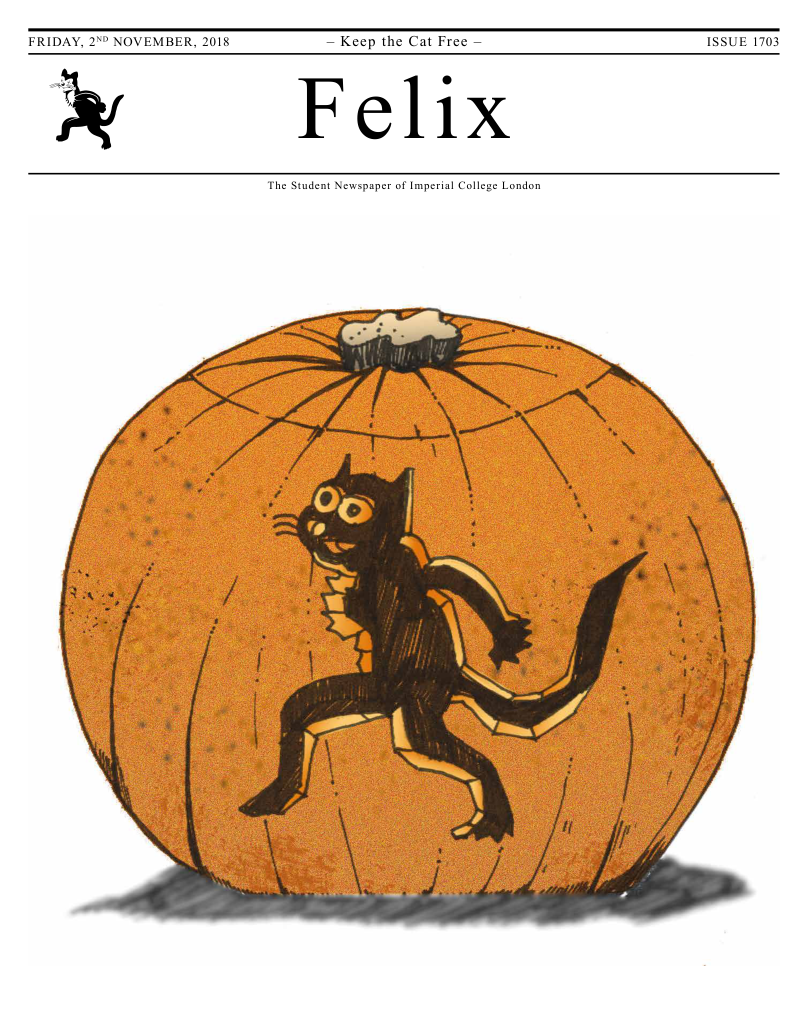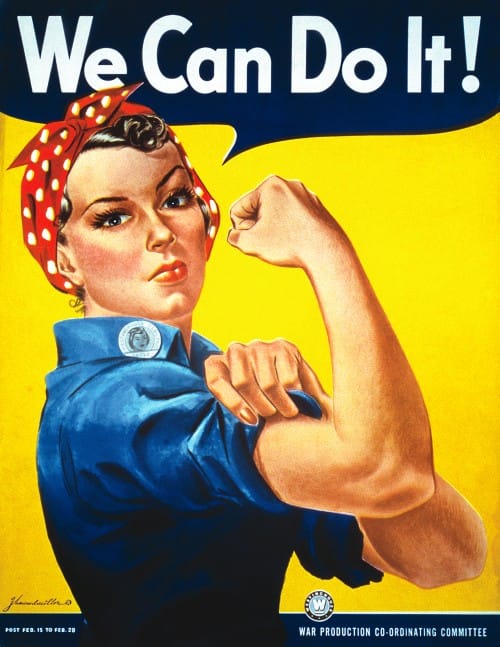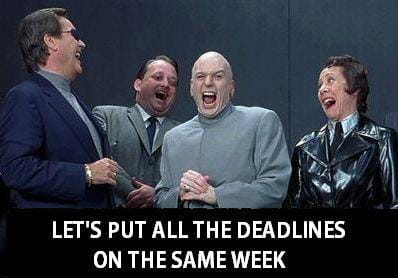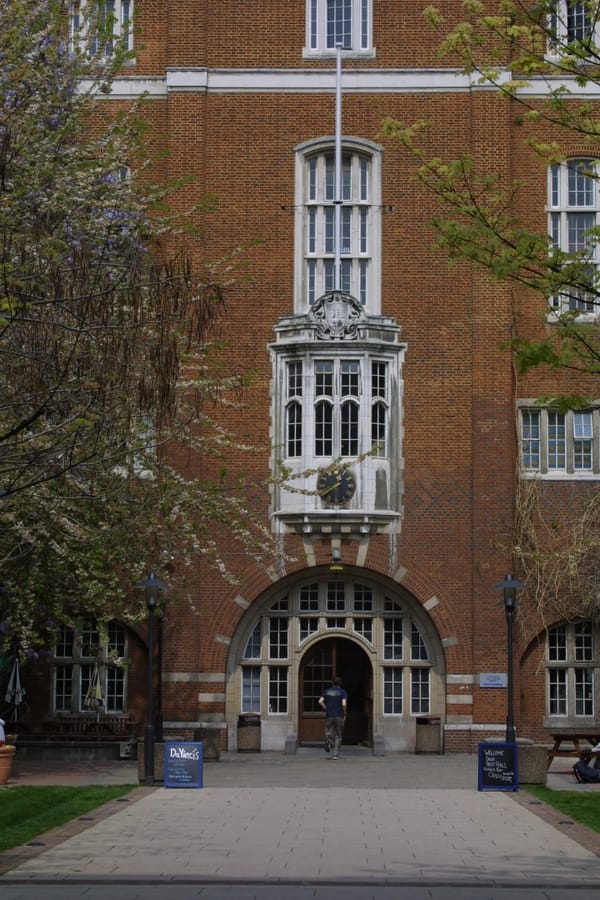The State of the Union
Editor-in-Chief, Andy Djaba, gives his take on the state of the Union and the problematic culture at Imperial

A few weeks ago, I wrote a News article about a concerning image that emerged showing Jarlath O’Hara, the Managing Director of Imperial College London, pictured beside a man dressed in blackface. I was first made aware of the image on 27th September If I’m honest, my initial reaction to the picture was to laugh. Not because I found anything particularly funny or didn’t appreciate the seriousness of the situation but because, unfortunately, this sort of problematic behaviour from people that should know better has become all too prevalant a feature in our daily lives. I often feel so helpless that all I can do is laugh. I was present at the 5th October meeting between Jarlath, Rob Tomkies, the Union President, and concerned students who had seen the image; six of whom are BME students. At this meeting, Jarlath was repeatedly urged by almost everyone present to extend the apology made to those present to the wider student body through the release of a public statement/ acknowledgement. However, Jarlath declined to do so and, subsequently, there was a general air of dissatisfaction following the meeting.
I have no qualms with Jarlath’s refusal to issue a public apology; he is well within his rights to deal with the situation as he sees fit. However, I thought the official response of the Union and the Board of Trustees to the emergence of the image was particularly interesting. Jill Finney, the Head of the Board of Trustees, began her statement on behalf of the Board of Trustees by saying: “It is deeply unfortunate that Jarlath found himself photographed in these circumstances over 12 years ago. Compromising historical images are increasingly a feature of our daily lives and it is incumbent upon all of us to ensure we do not participate or fall victim to them.”
I would argue that this response was inadequate and even bordered on tone deaf. I think it’s particularly telling that Jarlath is being painted as a victim in this situation. Although it is an unfortunate situation that Jarlath has found himself in and it could be argued that there is a conversation to be had about compromising historical images, this should not be the Union’s primary focus. It screams to me that the Union is missing the point.
However, I can’t say I’m surprised. From my experience, the Union often misses the point. My opinions of the Union have primarily been formed by the four years I spent here as an undergraduate student, as opposed to the few months I’ve spent as an employee of the Union. Although I would say my opinions are changing, I’ve generally had a quite negative view of the Union, especially when it comes to issues of inequality and, in particular, race.
The statement from the Board of Trustees ended with, “the Board... have satisfied themselves that Jarlath has no racist intent whatsoever”. I’m actually keen to move the conversation away from Jarlath because I feel that, when discussing issues of race, too much energy is focused on the individuals involved rather than the wider issue at hand. This is what I feel the Union has done with their response here and it should be noted that the Union is not in the best position to judge “racist intent”. Racism is not binary. As we have seen here, having “no racist intent” and even committing yourself to equality does not preclude you from being part of or being complicit in a racist act.
In the past, College and the Union have benefited from having a somewhat apolitical student body and, as a result, problematic behaviour seems to repeatedly go unchecked or is excused away as being “tradition.” Whether it be the Rugby team’s “fiesta dash” fiasco, the fact that, as recently as 2016, the Royal School of Mines held fresher “slave auctions” or the fact that “The 15s”, the Women’s Tie Club, is so-called because it was founded in 2015 (in contrast, “The 22s”, a male Tie Club, was founded in 1922), there are far too many examples from recent memory of times at which the Union has aligned itself with frankly unacceptable behaviour. I think it is telling that, following the public fallout from the “fiesta dash” event, ICURFC felt aggrieved enough to appeal the ensuing punishment. It says to me that they felt somehow “hard done by” and that this punishment was too harsh. I’m not suggesting that the punishment was too lenient but, if I were them, I would be counting my lucky stars that the punishment wasn’t more severe. That, and the fact that so little of the conversation was geared towards the racist aspect of the incident, is indicative of a culture of acceptance of problematic behaviour that is festering in the Union.
However, it’s not all doom and gloom! College and the Union are launching multiple initiatives to tackle the problems with the culture at Imperial, including the Race Equality Charter and the Equality, Diversity and Inclusion Act. However these initiatives require difficult and often uncomfortable conversations and open discourse about inequality and attitudes at Imperial. With Black History Month drawing to a close, now is as good a time as ever to have these conversations and to address exactly why so many BME Imperial students feel disillusioned and disenfranchised with the Union.
In the next phase of the Union’s development we have to consider the future. Otherwise the Union runs the risk of perpetuating a culture of indiffernce which is counter productive to their ideals of inclusivity.









